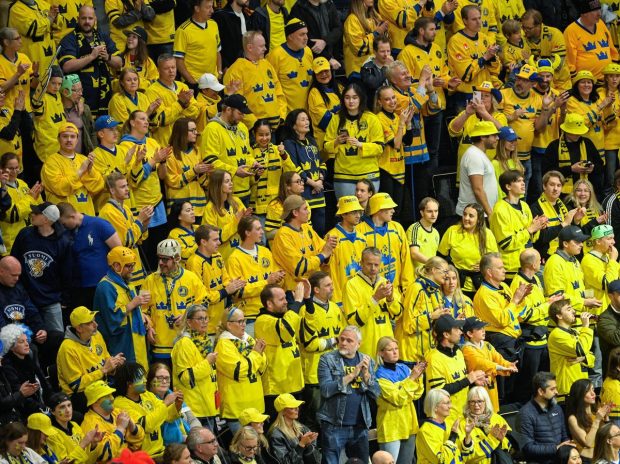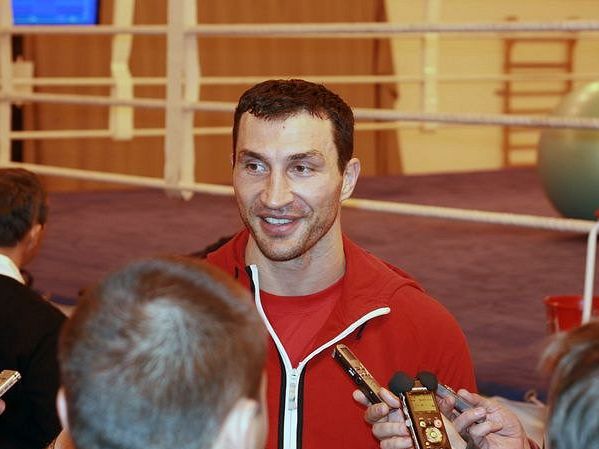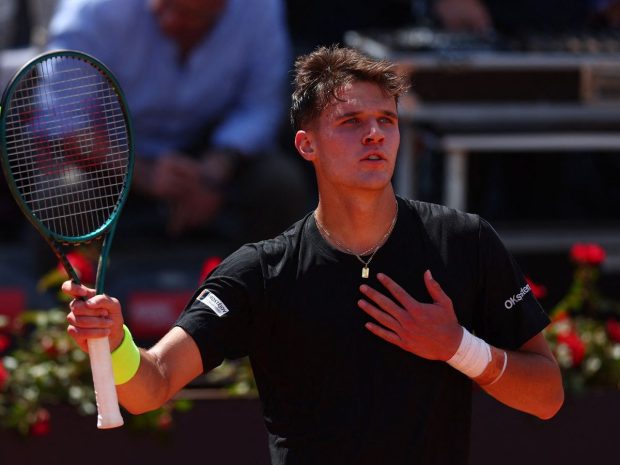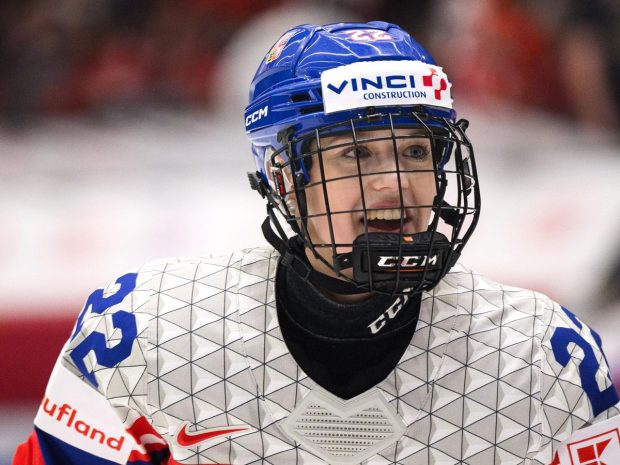In 2001, while the national stadium at Wembley was being rebuilt and cup finals were relocated to Cardiff’s Millennium Stadium, the journey home to north London from losing the FA Cup’s showpiece was longer, and more painful, than ever.
Arsenal’s sucker punch defeat galled them to the core. The club photographer, Stuart Macfarlane, sat on the bus next to one of the vanquished players and tried to come up with some words of consolation. “Don’t worry,” he said, “we will be back next year.” But, as he recalled in the book The Wenger Revolution, as soon as the words were out of his mouth, he privately admonished himself, wondering why the hell he said that.
Advertisement
At the time, Arsenal were struck down by a serious case of seconditis. For three seasons in a row, they finished runner-up in the title race. During that period, they also had a bunch of semi-finals and finals, but no silverware. It became a strange period of endurance and resilience, where an excellent team had to keep hauling themselves off the floor, punching themselves away from the ropes, for another round in search of that maddeningly elusive feeling of supremacy.
Little did Macfarlane know that Arsenal would, actually, be back the next year, and not only would they win the FA Cup. They also summoned the unwavering determination to become Premier League champions. Ultimately, three years of missing out would not defeat them.
There is a fundamental difference between Arsenal’s 1999-2001 nearly men and the contemporary version. Arsenal won the double in 1998, just before the missing-out seasons. Their squad contained a bulk of players who were multiple-winners already. So they did not have that extra doubt that can gnaw at someone trying to climb to the top of a mountain for the first time. They had plenty of players, and a manager, who knew what to do (even if it was bloody difficult to do again).
“That hits the nail on the head,” Lee Dixon, a veteran of league titles in the 1980s, 1990s and 2000s, who was part of that original group, tells The Athletic. “We’d won it before. This lot will be saying, ‘We’re getting closer’, but there’s no real substance to that belief because they haven’t got anything to back it up with.
“Until you win your first one, you lean on blind belief that it’s going to happen. When you win one, you’ve got a base of experience to say, ‘It’s OK’. You don’t have to do any therapy in the dressing room because they’ve all been there and they all know the feeling that it could be this year because they’ve won it before.”
Advertisement
One extra problem Arsenal had to contend with between the 1998 and 2002 doubles was vultures picking away at their squad. In many cases, they successfully shooed them away. Retaining the vast influence of Patrick Vieira and Dennis Bergkamp, two talismanic forces, was critical. It was slightly easier to keep the power of an iconic, English back four who had been together for over a decade, but with coveted overseas players, the situation was more fragile. The deal-maker of the time, David Dein, always joked about following Vieira out to his summer holiday destination to make sure nobody turned his head too far.
They could not keep everybody together. Three key players from the 1998 double winners — Nicolas Anelka, Marc Overmars and Emmanuel Petit — were all lured to the shining lights in La Liga. The challenge to replace them cleverly was picked up by the manager, Arsene Wenger, in style. Anelka out? Thierry Henry in. Overmars out? Robert Pires in. Emmanuel Petit out? Edu in.

Thierry Henry and Patrick Vieira with the 2002 FA Cup (Stuart MacFarlane/Arsenal FC via Getty Images)
Today’s Arsenal have done well so far to retain their most valued performers for the past three years.
That is a significant topic for Arsenal to address this summer with William Saliba and Bukayo Saka among a handful whose contracts are at a delicate stage.
The emphasis on Mikel Arteta, and his capacity to keep the squad unified in their desire and belief, is heavy. “He’s the ultimate believer and the players are his disciples and I think that that kind of relationship now becomes really important,” says Dixon.
How does it feel being close enough to be seemingly eternal runners-up? How does that impact on motivation and connection to the club? Is there a limit to how many times you can keep a group travelling together without getting to the promised land?
There has to be an emotional impact. Would it make you mad? Might it make a player feel tempted to leave? Could it just get you down after a while and plant the seed that it will never happen? Does it make you more determined to win with the group you have suffered with?
In the book Invincible, some of the players from the 1999-2001 generation reflected on their feelings during this period.
Freddie Ljungberg tried to explain that inner frustration with a Swedish twist. “In Sweden, we say, ‘You clench your fist in your pocket so nobody can see it’. Maybe that’s what made us after three years erupt and get better. We were not happy in any shape of form.”
Martin Keown also felt it deeply. “It hurt so much when we lost. The nucleus of the team were growing some big balls really because of the disappointments of what had happened before.”

Lee Dixon feels Arsenal players must reflect on this season to find how to take the next step (Robbie Jay Barratt – AMA/Getty Images)
For Dixon, the summer is a vital chance to reflect in a deeper way than is possible during the season. It can make a difference.
“If you can self-assess what you could do better, the more chance you have of repeating the successes, as opposed to just doing the same thing and having the same results,” he says. “The mental side of the summer is more important than the physical side of keeping yourself trim.
“Being a professional footballer is a cocktail and of all sorts of things. You can have a lot of the best players, technically, who can adapt to different ways of playing and be fluid. But you’ve got the little bit of salt and pepper on the top, the ability to work some of the stuff out yourself.
“Those extra things you sprinkle on the dish is the bit that gets you to win it and also gets you to win it again. The ability to be able to improve yourself without being told, to work it out yourself in the summer, cannot be underestimated.
“Mikel will have his ideas and they’ll be in the classroom and they’ll be watching videos and they’ll be having light-bulb moments but as a player individually, it’s those little bits that you work out yourself will get them over the line, or not.”
(Top photo: Shaun Botterill/Getty Images)
This news was originally published on this post .









Be the first to leave a comment